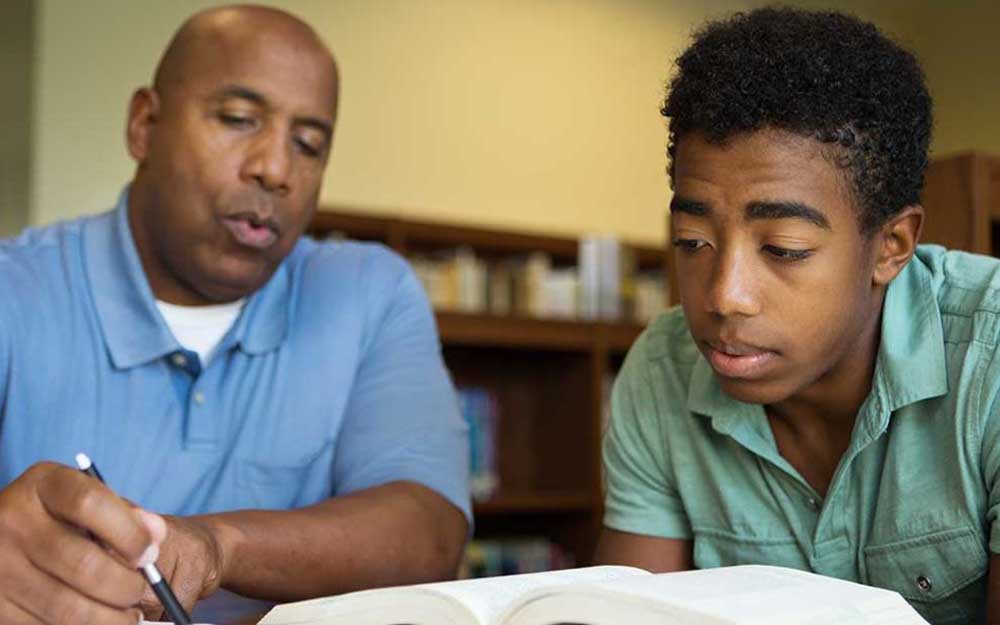School can be a stressful time for children and teens, and kids experience stress at increased levels for a variety of reasons. Anxiety is something that everyone experiences, but when it starts to disrupt someone’s life, it’s time to seek help from a professional.
When to refer a student for help with anxiety
Knowing when a student should seek treatment for anxiety is something both parents and teachers should understand, according to Amanda Heins, PsyD, attending psychologist in Rogers’ Child and Adolescent Center.
Dr. Heins says that teachers and parents will want to look for “an increase in avoiding school and other basic daily living needs, more power struggles in the morning, no longer socializing, and major changes in behavior.”
In school this might result in lower grades, less participation in extracurricular activities, and frequent absences. Looking at home patterns is equally important. For example, a student struggling with anxiety due to perfectionism may be staying up too late to complete homework.
In our podcast series on student anxiety, Rogers clinical supervisor Heather Jones, PhD, says it’s important to look at major changes over time, especially in this age group.
“It’s challenging with adolescents because any change in emotion or behavior is almost constant,” Dr. Jones explains. “You should look for a significant change over time. I would encourage parents to use their judgment—they know their child best and they know when things just don’t seem right.”
Dr. Heins agrees, adding “Teachers are so skilled at helping kids adjust. But if they’re still struggling after the first quarter, that is a sign that they might need more support.”
What are the signs of anxiety at school?
Anxiety can present differently from student to student, but there are general signs to look for. Rogers determines what level of care a person needs and evaluates how disruptive symptoms are to the person’s functioning.
Signs of anxiety that outpatient therapy can address
- Increased stress and anxiety related to school, but still attending
- Increased time finishing homework, but it’s still being turned in
- Apprehension about going to work/practice for a sport, possibly with parents having to encourage them to attend more
Signs of anxiety that may require intensive outpatient treatment or a higher level of care
- Major changes in behavior: no longer participating in activities that were previously enjoyable
- Not socializing with peers they used to spend time with
- Increased hopelessness or suicidal ideation
- Missing school regularly or a couple times a week
- Extra rituals or routines at home that lead into late hours at night
Anxiety looks different depending on age as well. Physical complaints like a stomach ache are common for younger kids who are suffering from anxiety. Other signs for kids include difficulty separating from parents, an increased number of tantrums, being more tearful throughout the school day, or avoiding activities like playing with toys, for example, because of concern that the toys are dirty.
Taking the next step
When a child needs treatment for their symptoms of anxiety, Rogers provides specialized programs at various levels of care including:
- Intensive outpatient care, meets for three hours a day, five days a week
- Partial Hospitalization, meets for six hours a day, five days a week
- Residential, intensive psychiatric and addiction care in a home-like setting with a typical stay of 30 to 60 days
- Inpatient, short-term care available 24 hours a day, seven days a week, to achieve a stable medical and emotional condition
If unsure about what level of care is needed, Dr. Heins says that “it doesn’t hurt to call. The medical doctor reviewing the case will make a recommendation and let parents know whether they meet criteria for a more intensive level of care or if outpatient is their best option.”
To learn more from our experts about anxiety and anxiety disorders, visit our Anxiety in schools webpage for more blog articles, podcasts, tip sheets, and more. For more information on anxiety treatment at Rogers, click here.
If you do not feel your child needs treatment right away, but may be concerned, we offer online quizzes to possibly provide some relief. While these quizzes do not provide a diagnosis, it could be the first step in finding the treatment your child may need. Take our online Anxiety Quiz today.


